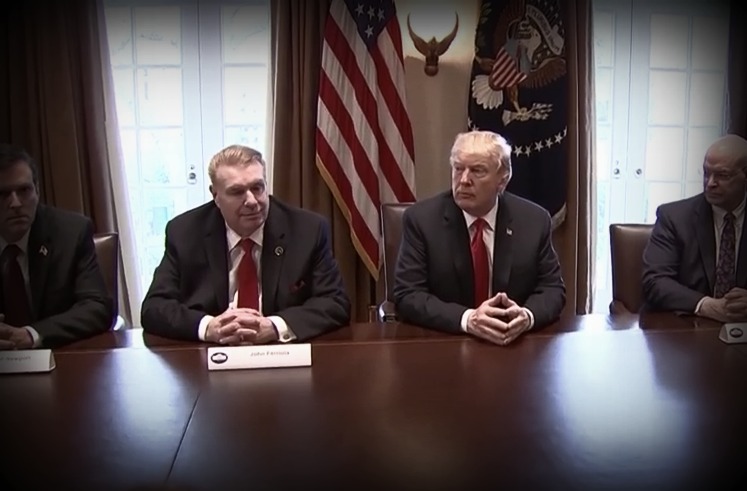In a meeting with US steel producers on Thursday, President Trump said he would implement new tariffs on steel and aluminum imports–causing financial elites to worry about a pending trade war.
US markets tumbled following the President’s announcement, with the Dow Jones Industrial Average ending the day off 449 points, nearly 2-percent.
Trump told reporters that the tariff proposal is “being written now,” and he’ll sign it next week. The initiative will include a 25-percent tax on steel coming into the country, and 10 percent on aluminum.
The duration of the tariffs and which countries it would apply to have not been finalized, though the President pointed his remarks on Thursday toward China.
“I don’t blame you,” Trump said, referring to the Beijing’s trade policies. “You’re able to get away with making almost $500 billion a year off our country, how can I blame you?”
The nation’s trade deficit with China increased under Trump’s watch, and stands at $375 billion. The US trade deficit around the world last year was $566 billion–up 12.1 percent during Trump’s first year in office.
When it comes to aluminum and steel, however, China isn’t even the top seller to the US. Canada leads the way in both products, with China ranking fourth in aluminum imports, and not even cracking the top ten in foreign steel suppliers.
The move could draw muted plaudits from labor groups long seeking more protectionist trade policies, though they are vigorously opposed to wide swaths of the President’s agenda.
But new tariffs were fiercely lobbied against within the White House and on Capitol Hill. The New York Times reported that the Gary Cohn, the director of the National Economic Council, and Defense Secretary James Mattis lobbied against the tariffs. Republican leadership on Capitol Hill also raised objections to any tightening of international trade markets.
Market declines reflected fears from financiers and other industry leaders that the new taxes could provoke retaliatory measures against US exports like agricultural products.
US Commerce Secretary Wilbur Ross was the primary force behind the decision to impose the levies. His department released a report earlier this month finding that the uneven nature of steel and aluminum imports posed a threat to US national security, and tariffs should be implemented.








